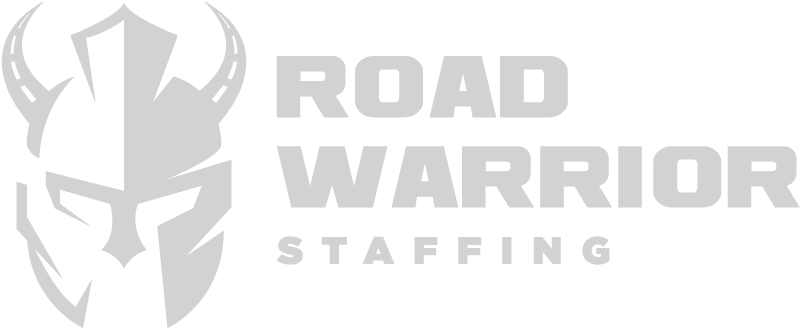Are you finding it difficult to choose between CDL and non-CDL jobs in the logistics industry? This post explains job requirements for CDL roles, non-CDL opportunities, and how market trends may affect your choice. Readers will learn how to assess personal goals and access practical tools for a better career decision.
Key Takeaways
- CDL drivers hold certifications that ensure strict safety protocols
- Non-CDL roles provide stable local schedules and consistent income
- Career choice depends on regulatory standards and personal aspirations
- Certification programs and ongoing training support long-term advancement
- Real experiences guide practical decisions in logistics career planning
Understanding CDL Jobs and Their Requirements

CDL jobs require specific credentials to operate vehicles such as flatbed trucks and trailers. The role covers understanding exam requirements, managing vehicle weight, and securing insurance. This section outlines key industries for CDL drivers, necessary skills, steps to obtain a CDL, and salary expectations, offering practical insights for informed career planning.
Defining Commercial Driver’s License Jobs
A CDL driver is responsible for operating heavy vehicles while maintaining strict safety procedures during every delivery. They are required to have comprehensive knowledge of vehicle operation and regulatory compliance that accounts for potential hazards on the road. Practical experience in managing these responsibilities contributes to smooth and secure delivery operations.
Commercial driver’s license jobs demand that operators possess clear expertise in handling diverse transport scenarios. Employers seek candidates whose background in vehicle operation reflects thorough knowledge of safety standards and efficient delivery practices. This level of proficiency ensures that every delivery is managed appropriately and that all safety protocols are strictly followed.
Experienced CDL drivers demonstrate both technical skills and a deep understanding of the industry’s safety guidelines. Their ability to account for various aspects of transport logistics contributes to consistent delivery results and minimal risks during transit. Such attributes are highly valued in roles that require precise adherence to both safety measures and operational procedures.
Common Industries for CDL Drivers
Industry roles for CDL drivers span several segments, with professionals expertly managing commercial vehicles like cdl trucks and tractors in demanding environments. Their expertise in cdl driving is vital to operations requiring secure transport of sensitive materials, including alcohol shipments in controlled conditions.
These roles serve sectors such as construction, retail, and specialized freight services. They also address regulatory standards and safety protocols in transporting hazardous or regulated items, including controlled substances like alcohol:
- Construction material haulage using tractors
- CDL truck operations in long-haul freight
- Specialized delivery services for regulated alcohol
Such career options provide stable work environments and opportunities for professional growth in certified transport roles. The ability to handle commercial vehicles with precision positions CDL drivers to excel in both standard and specialized sectors.
Steps to Obtain a CDL
Candidates begin the process by enrolling in a comprehensive training program that focuses on operating various motor vehicle types, including vans and other commercial configurations. This instruction builds proficiency in safely handling both cargo and passenger loads.
Applicants must complete a physical examination to verify their capacity to manage heavy vehicle operations and meet industry requirements for transporting cargo and passengers:
- Secure a learner’s permit after excelling in written assessments
- Enroll in practical driving sessions to familiarize with a van and other vehicles
- Pass a skills test that includes a comprehensive physical examination
Structured courses provide practical insights into real-world scenarios where precise driving and adherence to safety standards are paramount. Such training equips candidates with the expertise required to excel in positions that involve managing diverse modes of commercial transportation.
Key Skills Needed for CDL Careers
Strong expertise in managing a vehicle creates a reliable foundation for a successful career in CDL jobs. Industry professionals maintain driver qualification files to record performance and safety compliance, ensuring that every truck driver meets high operational standards. Experience in regular certification assessments further supports their readiness for evolving transport challenges.
Practical skills in operating advanced vehicle systems are critical to secure and timely deliveries. Skilled individuals keep constant contact with dispatch teams to address operational issues and validate safety procedures. Their commitment to proper certification and timely updates within driver qualification files demonstrates a professional approach valued in the logistics industry.
Industry experts consistently emphasize the importance of hands-on training and rigorous record keeping. Maintaining driver qualification files and achieving updated certification are integral steps that verify the capabilities of every experienced truck driver. This ongoing focus on skill development equips professionals to handle diverse operational scenarios with precision and confidence.
Salary Expectations for CDL Positions
Salary expectations for CDL positions reflect the diverse skills required in specialized roles, including qualifying for positions that demand air brake proficiency and comprehensive training in advanced transport operations. Professional drivers who have acquired the necessary certifications often enjoy higher earnings due to the complex nature of their work.
Compensation packages in this sector are structured to reward expertise in transport and towing tasks, where precision and reliability are highly valued by employers. The financial benefits are designed to support professionals who meet rigorous safety and operational standards on every job.
Individuals with experience in hot shot delivery services are positioned to receive competitive remuneration, as specialized training in handling unique transport challenges is a considerable asset. Industry experts advise that ongoing education and skill upgrades directly influence earning potential and career progression in the logistics field.
Exploring Non-CDL Job Opportunities

This section outlines non-CDL opportunities in sectors such as bus operations and commercial logistics. It covers required qualifications, career advancement, salary insights, and skills helpful for non-CDL roles, offering a clear contrast to positions like a cdl truck driver. Inspection standards also determine the reply to evolving industry needs.
Identifying Non-CDL Jobs in Various Sectors
Non-CDL roles cover a range of sectors, offering employment opportunities where drivers can operate trucks and box truck models. Candidates with a standard license can secure positions that emphasize careful route planning and vehicle upkeep.
Industry professionals note that positions such as car hauler provide practical employment outside traditional heavy-duty operations. These roles require a focused approach to safety and load management while meeting clear operational standards.
Other opportunities involve managing local delivery routes with box truck operations, where drivers benefit from structured training and a clear set of licensing requirements. Employers in these areas value real-world driving skills and professional conduct, making these jobs suitable for candidates seeking stability in their careers.
Required Qualifications for Non-CDL Positions
Non-CDL roles require candidates to hold a specific class license that complies with regulations set by the federal motor carrier safety administration. A successful candidate must often pass a DOT-mandated drug test, ensuring readiness for operational challenges.
Employers often request proof of training similar to a commercial drivers license for positions not requiring a full CDL, as this verifies adherence to established safety standards. This requirement, paired with a mandatory drug test and DOT guidelines, reassures employers of the candidate’s reliability and commitment to operational safety:
| Qualification | Requirement | Agency/Standard |
|---|---|---|
| Class License | Valid identification for non-CDL roles | Federal Motor Carrier Safety Administration |
| Drug Test | Pass the required evaluation | DOT Guidelines |
| Commercial Drivers License | Supplementary verification where applicable | Employer Standards |
Industry professionals consider thorough documentation and routine testing to be valuable for meeting operational standards in non-CDL positions. Practical experience, supported by proper licensing and consistent drug test compliance, helps address common concerns and drives a reliable performance in accordance with DOT regulations.
Career Advancement in Non-CDL Roles
Industry professionals in non-CDL roles steadily build their careers by participating in training programs that focus on safe car hauling and efficient hauling practices. They adopt strategies to reduce risk and maintain safety protocols to avoid accident scenarios.
Non-CDL positions reward commitment to practical skill upgrades and adherence to drug testing requirements, ensuring that safety remains a priority in all hauling operations:
| Focus Area | Action | Outcome |
|---|---|---|
| Car Hauling | Targeted training sessions | Improved handling and safety |
| Risk Management | Regular safety assessments | Lower accident occurrence |
| Drug Compliance | Routine evaluations | Stronger operational integrity |
Advancement in non-CDL roles is driven by field expertise and ongoing learning, empowering professionals to manage both car hauling and general hauling tasks with a focus on risk reduction. Consistent application of safety standards and strict drug monitoring paves the way for enhanced career progression in this sector.
Salary Insights for Non-CDL Jobs
Salary trends for non-CDL roles vary based on practical driving test performance and precise record keeping, which employers value as proof of technical expertise. Candidates with strong track records in meeting dot compliance standards often secure higher pay, creating opportunities for steady income growth.
Remuneration packages recognize professionals who demonstrate competence with vehicle systems, such as effective brake maintenance, as evident through reliable driving test outcomes. Employers regularly review candidate profiles to ensure adherence to stringent dot compliance and safety standards upheld by the industry.
Compensation benefits extend to professionals who actively maintain qualifications verified by a medical examiner and pass rigorous driving test assessments. The logistics field rewards measurable performance improvements, offering competitive salaries that align with demonstrated abilities and consistent safety practices.
Skills Beneficial for Non-CDL Careers
Non-CDL careers require practical skills that focus on handling a truck safely and efficiently, especially when planning to move heavy loads while managing the weight distribution across the vehicle. This expertise supports a seamless transition into roles where precise weight management plays a crucial role in daily operations without a cdl qualification.
Sound decision-making and effective communication remain essential for professionals in trucking positions who need to coordinate routes and scheduling, ensuring that every move is executed while meeting safety protocols. Such skills help maintain the integrity of the operation even when standard cdl certification is not applied.
Technical proficiency with truck maintenance and adherence to regulatory standards shapes the performance of non-cdl drivers, providing actionable insights to address the challenges associated with weight handling and secure loads. This hands-on experience in trucking environments offers meaningful benefits for steady career progression.
Comparing CDL and Non-CDL Job Markets

This section compares job availability, career stability, and satisfaction levels in CDL versus non-CDL roles. It reviews industry trends and the future outlook for both categories, highlighting compliance standards and insights from a lawyer‘s perspective. The content offers practical road guidance for those evaluating varied transport careers.
Job Availability for CDL vs Non-CDL Positions
CDL opportunities in the logistics field tend to be widespread, with major transportation companies seeking qualified drivers for long-haul and specialized freight roles. Professionals experience a steady stream of CDL positions, largely due to the need for experienced operators who can handle heavy vehicles and adhere to strict safety standards.
Non-CDL roles also maintain a healthy presence in the transport sector, offering career options in local delivery and vehicle operations. These positions attract candidates who prefer working with lighter trucks, providing opportunities in urban shipping and route management within established logistic networks.
The job availability for both CDL and non-CDL positions reflects the varied needs of the logistics industry, accommodating diverse skill sets and work preferences. Organizations in the transport sector continue to secure talent by aligning career options with operational demands, ensuring that both types of roles contribute to efficient and secure delivery operations.
Career Stability in CDL Versus Non-CDL Fields
CDL positions in the logistics industry offer steady career paths driven by ongoing demand and strong regulatory support. Companies consistently seek professionals with proven expertise to handle intensive transport operations, ensuring a reliable flow of opportunities.
Non-CDL roles also provide stability in urban shipping and local delivery, where structured schedules and consistent workloads create reliable income streams. Employers value these drivers for their practical skills and capacity to meet strict operational needs.
Both CDL and non-CDL fields show consistent job growth and careful planning from organizations that aim to secure skilled drivers. Logistics companies maintain focused hiring practices that benefit professionals with diverse driving qualifications and emphasize compliance with safety measures.
Job Satisfaction Levels in Both Career Paths
Job satisfaction metrics in this field show that CDL professionals often experience gratification from handling challenging transport tasks and gaining recognition for strict adherence to safety practices. This satisfaction is driven by a clear career structure and consistent engagement with operational requirements.
Non-CDL roles offer fulfillment through steady daily routines that emphasize reliability and effective coordination for local operations:
| Job Type | Satisfaction Factor | Operational Benefit |
|---|---|---|
| CDL Roles | Recognition for technical expertise | Enhanced career structure |
| Non-CDL Roles | Consistent daily routines | Effective route management |
Both career paths maintain strong motivation among professionals by offering clear performance indicators and dependable regulatory support. The industry rewards both CDL and non-CDL drivers with practical benefits that drive ongoing operational commitment and skill improvement.
Industry Trends Impacting CDL and Non-CDL Jobs
The transportation sector continuously experiences shifts influenced by advances in digital tracking and alternative energy technologies that impact both commercial driving and local delivery markets. Industry professionals observe that these developments lead to a demand for updated certification and training practices, ensuring that drivers meet current operational standards.
Regulatory changes have reshaped safety measures and compliance requirements for drivers across all segments. This trend supports informed career planning, as employers now focus on candidates with strong records and well-documented training achievements in the logistics field.
Market adjustments also mirror an increased focus on environmental standards and the integration of modern vehicle systems. Observers in the field note that updated operational procedures guide career decisions by emphasizing continuous skill development and adherence to evolving regulatory guidelines in both CDL and non-CDL roles.
Future Job Outlook for Both Categories
Market forecasts indicate steady openings for both CDL and non-CDL roles as logistics companies adjust to shifting compliance rules and technological improvements. Professionals in both fields are expected to maintain strong demand due to evolving industry standards and the integration of efficient operational technologies.
Industry analysts predict that the future job outlook will continue to favor candidates with proven expertise and updated certifications:
| Job Category | Growth Trend | Tech Adaptation |
|---|---|---|
| CDL Roles | Steady increase in long-haul and specialized transport | Incorporation of digital tracking and compliance systems |
| Non-CDL Roles | Consistent demand in local delivery and urban logistics | Enhanced routing and safety monitoring technologies |
Industry experts emphasize that professionals with continuous training and a focus on safety performance will find promising opportunities in both fields. This projection offers clarity for those planning their next career move in the logistics market.
Evaluating Your Personal Preferences and Goals

Assessing driving skills, work-life balance, financial implications, job security, benefits, and growth potential helps professionals choose between CDL and non-CDL roles. This overview offers practical insights for a logistics career, linking personal interests and long-term goals to informed, reliable career decisions.
Assessing Your Driving Skills and Interests
Industry professionals advise that a clear evaluation of one’s driving skills forms the basis of securing a reliable logistics career. Specialized assessments of vehicle handling and safety procedures help determine the suitability of pursuing CDL or non-CDL roles. Such insights guide individuals when aligning their proven abilities with the demands of different transport environments.
Experts suggest that reviewing past experiences and performance during diverse driving scenarios contributes to a practical understanding of personal strengths. Familiarity with various vehicle types and road regulations supports the selection process for roles in the logistics sector. This approach allows professionals to set precise goals based on tangible driving abilities and practical training outcomes.
Evaluating driving interests involves recognizing a passion for transport safety and efficient route management. Professionals with demonstrated expertise benefit from regular performance reviews and targeted skill upgrades. These assessments foster confidence and clarity when determining the best logistical career pathway, ensuring decisions meet both capability expectations and personal growth objectives.
Considering Work-Life Balance in Each Path
Industry professionals assess work-life balance factors when choosing between CDL and non-CDL roles. They review scheduling challenges, travel demands, and family time to determine which opportunity aligns with their long-term objectives.
Experts highlight that evaluating daily routines, off-duty time, and working conditions offers clear insights into each path:
| Aspect | CDL Roles | Non-CDL Roles |
|---|---|---|
| Flexibility | Fixed long-haul schedules | Predictable local routes |
| Time Away | Extended periods on the road | Regular home time |
| Schedule Regularity | Variable daily hours | Stable working hours |
Professionals compare both paths carefully by balancing operational demands and lifestyle needs. This practical approach ensures that driving professionals select a route that supports their personal and career growth objectives.
Financial Implications of Each Career Choice
Financial implications for CDL roles often mean higher wage potential paired with increased personal expenses such as advanced certifications and upkeep costs. Industry professionals observe that the costs associated with maintaining qualifications and handling operational expenses are balanced by the opportunity for increased earnings in long-haul and specialized transport assignments.Positions We Staff
Non-CDL jobs provide a consistent pay scale that suits local delivery and urban logistics, attracting individuals seeking steady income without extra overhead. Experts confirm that these roles involve lower licensing fees and reduced training expenses, which can contribute to quicker financial stability.
Both career paths offer clear monetary rewards that improve with demonstrated skill and reliable performance. Analysts note that careful budgeting and tracking of expenses, along with continuous on-the-job learning, enable logistics professionals to plan effectively and achieve long-term financial growth.
The Importance of Job Security and Benefits
Job security and benefits play a vital role in shaping career choices for professionals in the logistics sector, whether they are pursuing CDL or non-CDL positions. Organizations offer steady positions and defined benefit packages that contribute to a stable work environment and support ongoing professional development.
Evaluating reliable benefits assists candidates in matching their work preferences with long-term career goals:
- Consistent work schedules
- Comprehensive health coverage
- Retirement savings options
Reliable benefit schemes boost employee confidence and improve daily operational performance. Professionals report that secure work conditions and predictable benefits ease personal planning and foster career growth in logistics roles.
Long-Term Career Growth Potential
Long-term career growth potential presents clear pathways to advanced roles in the logistics field. Industry practitioners observe that focused training and regular skill updates support upward career movement for both CDL and non-CDL positions.
In long-term career planning, metrics such as performance reviews, specialized certifications, and leadership opportunities guide the choice between CDL and non-CDL roles:
| Career Aspect | CDL Roles | Non-CDL Roles |
|---|---|---|
| Skill Advancement | Structured training and advanced endorsements | Focused certifications and local experience |
| Leadership Opportunities | Transition into supervisory positions | Progression to operational management |
| Financial Growth | Higher earnings through specialized operations | Consistent income improvement with route expertise |
Professional development tailored to individual strengths enables lasting advancement in both career paths. Industry experts emphasize that targeted training and regular evaluations lead to achievements that secure a reliable future in logistics.
Resources and Tools for Making Your Decision

Insights include certification programs for both CDL jobs and non-CDL careers. Online platforms, networking opportunities in the trucking industry, case studies of successful professionals, and guidance from career counselors and industry experts offer valuable support. These resources equip candidates with practical information to make informed employment decisions.
Certification Programs for CDL and Non-CDL Careers
The certification programs for CDL and non-CDL careers provide structured training that equips candidates with the skills required for various transport roles. These programs focus on practical knowledge and regulatory compliance, ensuring that each participant gains hands-on experience that is relevant in today’s logistics scene. The courses provide a clear path towards industry recognition and professional development.
Industry experts note that these certification programs address real-world challenges and build professional competence through intense training modules. The programs cover a range of areas, from safe vehicle operation to thorough regulatory procedures, allowing candidates to meet industry standards with confidence. This structured approach helps professionals manage operational tasks while preparing for advancements in their careers.
The training offered in certification programs emphasizes actionable insights and targeted learning experiences. Participants receive direct instruction on operational procedures and documentation processes, which improves performance in daily logistics tasks. This focused education supports long-term career satisfaction and progression in both CDL and non-CDL job opportunities.
Online Platforms for Job Searches
Online platforms for job searches provide logistics professionals with immediate access to numerous listings for CDL and non-CDL roles. They offer efficient filtering tools, enabling candidates to pinpoint opportunities that match their specific career requirements and geographic preferences.
These digital job boards present essential data, allowing candidates to compare career paths with ease. They organize details into clear sections such as job type, experience requirement, benefits, and salary range:
- CDL positions focused on long-haul transport
- Local delivery roles for non-CDL opportunities
- Specialized transport services requiring expert handling
Online job channels also provide resources for comparing benefits and career progression prospects, which are key for professionals in the logistics field. The detailed information available helps candidates make well-informed decisions with minimal effort.
Networking Opportunities in the Trucking Industry
Networking opportunities in the trucking industry allow logistics professionals to connect with experienced peers and industry leaders. Participation in professional events and community forums provides clarity on both CDL and non-CDL career options. These interactions offer real-world insights that guide informed decision-making in a competitive transport market.
Industry events and forums serve as a platform where professionals share practical advice and effective strategies. Engaging in these platforms helps individuals learn about up-to-date certification programs and safety practices. This exchange of information assists candidates in aligning their career goals with operational demands across the logistics sector.
Experienced professionals recommend leveraging networking events to explore job openings and understand operational challenges within the field. Direct contact with seasoned drivers provides actionable feedback on navigating both long-haul and local delivery roles. This practical approach aids professionals in identifying the best path to career growth in a rapidly transforming transport industry.
Case Studies of Successful CDL and Non-CDL Professionals
A seasoned CDL professional improved operations by concentrating on advanced training and maintaining strict adherence to safety protocols. His record of consistent performance in long-haul routes demonstrates how focused expertise leads to increased reliability and career advancement.
A non-CDL expert secured a stable position in urban logistics by actively participating in skill enhancement and practical instruction. This individual successfully refined route planning and vehicle maintenance practices to overcome everyday challenges in local delivery operations.
Industry examples reveal that both CDL and non-CDL professionals achieve success through continuous learning and strategic decision-making. Such case studies offer practical insights that help guide individuals when selecting the best career path in the logistics sector.
Guidance From Career Counselors and Industry Experts
Career counselors and industry experts offer tailored advice that addresses the specific needs of those considering CDL or non-CDL roles. Their guidance is rooted in years of industry experience, ensuring that candidates receive practical insights that align with current transport standards. This support helps individuals navigate career choices with clarity and confidence.
Experienced professionals in the logistics sector share actionable strategies that simplify the decision-making process. Their input covers essential areas such as certification requirements, operational trends, and financial considerations for both CDL and non-CDL positions. This expert advice proves valuable by highlighting real-world examples that resonate with career aspirants.
Expert career counselors assist candidates by evaluating skills and recommending roles that match their background and future ambitions. They provide detailed feedback based on current market research and direct industry involvement, which aids in clarifying personal goals. Such informed recommendations empower job seekers to confidently pursue opportunities that offer both stability and growth.
Making the Right Choice for Your Career Path

Practical advice guides transitioning between CDL and non-CDL jobs, while real-life success stories illustrate both options. Expert testimonials help weigh pros and cons, supporting the creation of a personalized career plan tailored to logistics professionals’ needs and experiences.
Tips for Transitioning Between CDL and Non-CDL Jobs
Professionals transitioning between CDL and non-CDL roles should begin by reviewing their current training and certification records. This evaluation helps pinpoint areas where additional education may strengthen career opportunities in both job categories.
Networking with industry colleagues offers practical support during the transition. Experts in the logistics sector recommend connecting with experienced drivers and supervisors to gain insights on operational requirements and safety procedures.
Adopting a clear plan for skill development ensures a smoother switch between job types. Regular performance assessments and targeted training programs assist drivers in preparing for the challenges that come with new responsibilities.
Real-Life Success Stories From Both Career Paths
A seasoned CDL professional demonstrated clear expertise by taking on challenging long-haul assignments and building a notable record in managing heavy transport operations. Industry peers acknowledged this individual’s dedication to strict safety measures and continuous skill improvements that set a high standard for logistic operations.
A non-CDL operator achieved a stable career in urban logistics by focusing on precise route management and proactive vehicle maintenance. The story highlights several key actions taken by this expert for success:
- Performed targeted training to master local delivery protocols
- Maintained rigorous documentation of vehicle inspections and safety checks
- Practiced consistent communication with dispatch teams to ensure operational efficiency
A detailed comparison of both career paths reveals that each success story contributes valuable insights for logistics professionals. By sharing real-life examples, the professional community gains actionable guidance to choose the role that best meets their career goals while upholding industry standards.
Weighing Pros and Cons of Each Option
Industry professionals analyze both CDL and non-CDL jobs by comparing safety standards, training requirements, and operational demands. They emphasize that CDL options offer more structured long-haul roles, while non-CDL roles provide predictable routes and consistent work hours. Experts note that clear documentation of these factors assists individuals in matching their skills with the best career opportunities.
Evaluating job satisfaction involves looking at the benefits and challenges each option presents. CDL positions tend to provide higher earnings and specialized training opportunities, whereas non-CDL roles emphasize work-life balance and steady local operations. This comparison helps logistics professionals decide which path aligns with their long-term career goals.
Practical insights from the industry suggest that candidates must weigh regulatory requirements and the daily demands of each role. CDL drivers need to manage complex delivery scenarios, while non-CDL positions focus on operational consistency and technical upkeep. Detailed assessments of these elements equip job seekers with the confidence to make informed career decisions.
Seeking Testimonials From Industry Professionals
Industry professionals provide valuable testimonials that serve as practical guidance for aspiring logistics experts. Their firsthand accounts of working in CDL roles and non-CDL positions help clarify the operational challenges and rewards associated with each career option. These insights offer clear direction for individuals comparing the demands of long-haul transportation with local delivery routes.
Testimonials from experienced drivers underscore the importance of proper training and adherence to safety standards in managing heavy vehicles. Professionals in the field share actionable examples that highlight the practical benefits of specialized certification programs and continuous skill development. Their real-world experiences support candidates in aligning their qualifications with precise job requirements in the logistics industry.
Feedback from seasoned logistics operators reinforces the value of leveraging personal experiences when exploring career paths. Their detailed observations on work-life balance, financial implications, and job stability assist individuals in making informed decisions between CDL and non-CDL jobs. This trusted advice ensures prospective drivers gracefully transition into roles that best match their professional skills and long-term career objectives.
Developing a Personalized Career Plan
A personalized career plan acts as a clear roadmap for logistics professionals weighing CDL and non-CDL opportunities, helping them align practical skills with career aspirations.
The development process involves evaluating current certifications, assessing driving expertise, and considering work schedule preferences to determine the ideal pathway:
- Review current training and certification records
- Assess personal driving skills and safety performance
- Compare long-term income potential and job stability
- Set realistic short-term and long-term career goals
Practical insights from experienced professionals encourage regular performance reviews and targeted training investments, ensuring the plan remains adaptive and supports consistent advancement in the logistics sector.
Frequently Asked Questions
What training is required for CDL jobs?
CDL training involves classroom instruction, practical driving sessions, and passing required tests per state guidelines. A logistics company ensures drivers acquire the skills needed to meet safety, operational standards, and regulatory compliance on road assignments.
Which non-CDL career roles are available?
Non-CDL roles within this logistics firm include opportunities such as
- logistics coordinator
- warehouse operator
- inventory specialist
- dispatch associate
that offer rewarding career paths in transportation operations.
How do job markets differ between CDL and non-CDL roles?
CDL job markets offer opportunities requiring specific licensing, often yielding higher wages and stability in transport sectors, whereas non-CDL roles provide a greater range of options across various industries with diverse entry criteria and career paths.
How can personal preferences shape career choices?
Personal preferences directly influence career paths by aligning work roles with an individual’s interests, values, and abilities, ultimately guiding choices that deliver job satisfaction and success in specialized sectors such as logistics.
What resources help decide your career path?
Career path planning resources include educational career guides, professional mentorship networks, accredited counseling services, industry-specific job assessments, and networking events that provide insights into requirements and opportunities, assisting individuals in making informed choices within a logistics company framework.
Conclusion
The discussion highlights the distinct advantages and challenges of CDL and non-CDL roles, urging professionals to assess their driving skills, safety standards, and long-term career goals. It emphasizes that rigorous training, compliance with regulations, and practical experience form the backbone of success in both career paths. The analysis shows that evaluating work-life balance and financial potential is key to making informed career choices. Ultimately, the insights empower candidates to confidently select a path that aligns with their expertise and aspirations in the logistics industry.




